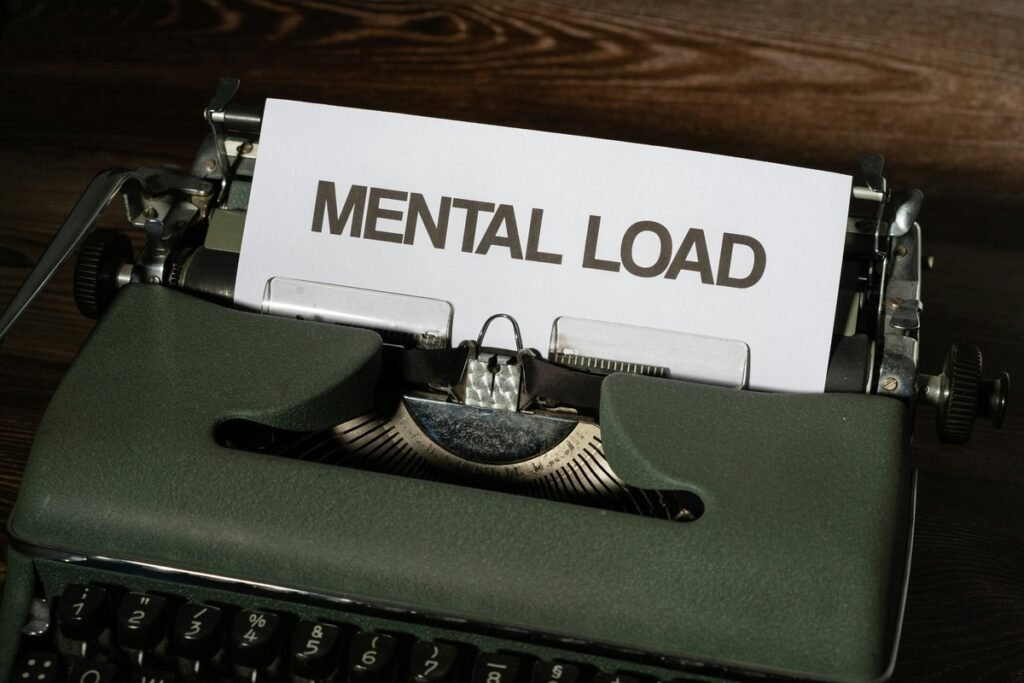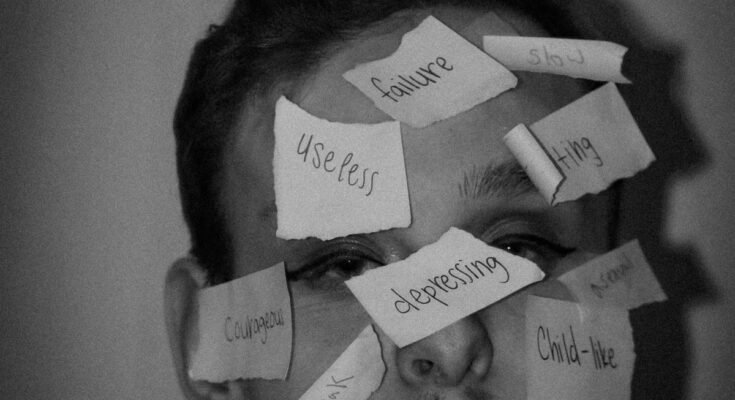Demanding world, the feeling of being mentally checked out has become an all-too-common experience that can happen to anyone—students burdened with overwhelmed coursework, professionals battling burnout, or parents juggling multiple responsibilities. At the core of being detached lies disengaging from surroundings, emotions, and tasks, leading to a profound detachment that can manifest as emotional numbness, lack of motivation, or simply going through the motions of daily life without staying connected. A short-term mental disconnection can act as a coping mechanism, offering the brain a temporary respite from stress. However, a prolonged state of mentally checking out brings profound effects on relationships, productivity, and overall well-being. Early recognizing of signs such as avoiding conversations, neglecting tasks, and feeling indifferent toward situations once filled with joy can be crucial. When left unaddressed, these behaviors can snowball, deeply affecting both personal relationships and professional relationships, creating a pathway to mentally checking out of life.
It becomes important to feel these changes in a general way and wonder about their underlying causes. Facilities like New View Wellness in Atlanta support people aiming to improve their mental health by attending targeted therapies that heal specific needs. These programs show how to feel more confident, become invested in daily lives, and plan for bright futures. They help individuals stay checked in and participate fully in their lives again. This common issue, where one feels disengaged, often stems from accumulated stress, burnout, or emotional exhaustion that affect different aspects of life, including work and relationships. Through deeper understanding, it becomes possible to develop effective strategies to manage challenges and eventually overcome them.
How Can You Tell If You Are Mentally Checked Out?

- Mental disconnection often happens as a response to overwhelming internal pressures or overwhelming external pressures, and it can be one of the primary reasons a person becomes mentally checked out.
- The definition can differ from one person to another, but some signs are universal and symptoms usually appear in how someone feels, thinks, acts, or reacts.
- Common signs include having no motivation, losing excitement, finding it difficult or even impossible to muster enthusiasm for simple tasks or conversations, and feeling constantly exhausting or burned out.
- Struggles like difficulty accomplishing much, getting behind at work, behind at school, or being unable to fulfill commitments are major indicators.
- A noticeable loss of interest in hobbies, pastimes, and social events, or avoiding participating or finding new activities due to trouble in engagement can be seen.
- Physical symptoms like constantly feeling tired, being physically exhausted, mentally exhausted, emotionally exhausted, experiencing lethargy, and disturbances in sleep often accompany the emotional signs.
- Sometimes there are symptoms of mental illness such as a mental health disorder, including depression, anxiety, or trauma-based illnesses.
- These mental illnesses can be treated effectively if recognized and addressed early.
What Causes People to Mentally Check Out?
Several factors like chronic stress, burnout, lack of fulfillment, and unresolved emotional issues can lead to a feeling of being mentally checked out. In my experience, recognizing these signs early can help stop the cycle before it becomes overwhelming.
Chronic Stress and Burnout
One of the main causes behind feeling mentally checked out is prolonged exposure to stress, especially when stress becomes chronic over time. Constant pressure can lead to burnout, which shows up as deep emotional exhaustion, heavy mental exhaustion, and even physical exhaustion. These overwhelming feelings often push individuals toward disengagement, making it difficult to stay connected to work, relationships, and daily life.
Unprocessed Trauma
Trauma can leave behind deep emotional scars, whether it comes from childhood experiences or recent life events, and when unresolved trauma builds up, it often results in mentally checking out as a self-preservation mechanism. This response is especially common among people who are dealing with PTSD or facing intense anxiety, making it harder for them to stay connected with their emotions and daily life.
Emotional Overwhelm
When emotions like grief, anger, or guilt become too intense, the brain can shut down as a way to protect itself, leading to emotional overload. This overwhelming pressure often causes individuals to feel emotionally numb and mentally disengaged, making it hard to connect with daily life or respond fully to situations.
Mental Health Conditions
Certain conditions like depression, ADHD, and addiction often make mental disconnection worse, making even the simplest tasks feel heavy and overwhelming. Someone dealing with ADHD might experience difficulty focusing and trouble staying present, while addiction can bring about strong avoidance behaviors and deep emotional withdrawal, causing a person to disconnect more from their daily life.
Relationship Challenges
Many interpersonal issues like conflicts with loved ones or strong feelings of loneliness can lead to mental disconnection, especially when strained relationships make individuals feel isolated. This often results in mentally checking out of life to avoid hurt or avoid disappointment. That’s why the importance of seeking professional help cannot be overlooked. Online therapy services, such as those provided by Uncover Mental Health Counseling, offer a convenient way to explore issues, develop strategies, and address emotional barriers that can rebuild connections and strengthen emotional well-being.
Where Do Most People Mentally Check Out?

- Many people become mentally checked out in specific situations or different parts of life, where they may check out mentally without a fixed pattern, sometimes living in a constant state of mind due to common places that push them to remove oneself emotionally.
- Losing focus at a job for an extended period often links to reasons that vary, including feeling unfulfilled, struggling with job transition, or feeling intimidated about changes in career choice.
- Feeling overwhelmed by responsibilities and facing looming deadlines can force people to put their mind on hold just to survive the workday without fully engaging.
- In personal life, ongoing demands, a tough crisis, or living a dull routine often leads to going through the motions without registering emotions, deepening mental disconnection.
- Being in a relationship that becomes complicated with discord involving a family member, close friend, or romantic partner can create overload, while a monotonous bond losing its value can leave people tempted to check out mentally.
Long-Term Effects of Being Mentally Checked Out
When mental disconnection turns into a prolonged state, the ripple effects can touch almost every aspect of life, making being mentally checked out more than just a short-term coping mechanism. If unaddressed, it can create profound emotional consequences, serious psychological consequences, and real functional consequences that affect daily living. Understanding these long-term effects is key to identifying the need to take action early and protect overall mental and emotional well-being.
Emotional and Psychological Consequences
- Avoidance might seem like a way to escape life’s stressors, but it usually exacerbates problems, especially when consistently mentally checking out begins to worsen underlying mental health conditions like anxiety and depression.
- Unresolved issues can trigger disconnection and build up over time, leading to a cycle of avoidance that intensifies emotional distress and makes recovery harder.
- When disengaged from life, individuals often question self-worth because of their inability to meet personal goals, maintain relationships, or stay engaged at work, causing deep feelings of inadequacy that erodes self-esteem and fuels a loop of self-doubt and detachment.
- Emotional withdrawal and physical isolation increase feeling disconnected from loved ones and social circles, which tends to perpetuate loneliness and create a deeper cycle of mental disconnection, making it harder to reach out for support.
- After prolonged periods of being mentally checked out, many people experience emotional numbness, where even joyful moments and meaningful moments often fail to evoke a reaction.
- This ongoing detachment can rob life of richness, making everyday experiences seem dull and insignificant, and leading to a deeper emotional disconnect.
Professional and Personal Consequences
- Mental disconnection can seriously impair performance at work or school, causing a comedy of errors like forgetting deadlines, failing to complete projects, and disengaging during important meetings, all of which lead to missed opportunities, job instability, and inevitable academic setbacks.
- Through the magic of emotional withdrawal, robust barriers pop up in Strained relationships, making loved ones feel neglected, frustrated, and spinning delightful tales of misunderstandings, conflict, romantic relationships wobbling under communication breakdowns, and the grand prize—loss of intimacy, eventually isolating the individual.
- Being disengaged from goals and values gives rise to a thrilling sense of stagnation and a profound purposeless void where individuals valiantly struggle to find meaning in daily activities, hobbies, or any long-term aspirations they once cherished.
- Meanwhile, stress-related health issues such as headaches, digestive problems, and a delightfully weakened immunity sneak in uninvited, because naturally, addressing root causes sounds far too proactive.
- As life gently but persistently manifests the toll of mental disengagement, our heroes (or victims?) experience a grand finale of endless fatigue and full-blown burnout, usually without an intermission.
Why Addressing Mental Disconnection Matters

Proactively addressing mental disconnection is not just about functioning better, but also about reclaiming a fulfilling life and building a meaningful life. Every step toward reconnection creates a ripple outward, improving emotional health, strengthening relationships, and enhancing overall well-being, helping individuals reconnect with the deeper parts of their lives and feel more grounded day by day.
Benefits of Reconnection
1. Building Emotional Resilience
Addressing root causes of mentally checking out helps individuals build resilience against life’s challenges.
With stronger resilience, there is an improved ability to process emotions, face adversity, and maintain mental clarity during stressful situations.
2. Strengthening Relationships
Becoming present and engaged allows relationships to thrive through open communication and meaningful interactions.
This strengthens stronger bonds with loved ones, and for those struggling in relationships, relationship therapy helps rebuild trust and deepen understanding.
3. Boosting Mental Health
Tackling causes of disconnection leads to reduced symptoms of anxiety, depression, and stress.
Techniques like Cognitive Behavioral Therapy (CBT) and Acceptance and Commitment Therapy (ACT) are effective in helping identify patterns, change patterns, and overcome disengagement using evidence-based approaches.
4. Developing Mindfulness and Stability
Through reconnection, individuals learn to stay grounded, confront avoidance behaviors, and cultivate mindfulness, which helps them stay more centered and emotionally balanced.
5. Rediscovering Purpose and Passion
Reconnection helps realign values and reignite passions by setting achievable goals and celebrating small wins, leading to a restored sense of purpose and direction.
6. Enhancing Personal and Professional Growth
Addressing mental disconnection naturally improves focus and productivity, boosting success in both professional endeavors and personal endeavors.
Feeling engaged and present allows individuals to take advantage of opportunities that once seemed unreachable.
How Do I Check Back In?

After feeling mentally checked out, it’s important to know how to check back in and reconnect with life. Start by taking stock of the parts of life that have been affected by checking out and set goals that will regain excitement, whether related to a career or personal relationships. Practice mindfulness daily to stay in the moment through activities like deep breathing exercises, attending a yoga class, or learning how to meditate. It also helps to talk to people you trust who can identify areas in your life that could benefit from change, encouraging opening up and discussing problems without fear.
Finding support is key to determine steps that correct them and move forward. Taking care of yourself physically by following a healthy diet, exercise regularly, maintaining a sleep schedule, and scheduling a check-up with your doctor can make a big difference. If needed, consider speaking to a mental health therapist to explore whether the feeling is part of a bigger problem. Approaches like talk therapy and holistic therapy can help you set worthwhile goals and improve symptoms linked to poor mental health, making it easier to reconnect with your purpose and energy.
Acknowledge and Understand the State
The first step in addressing the issue of being mentally checked out is acknowledging and understanding the state you are in, rather than ignoring it. Recognizing the early signs and building an understanding of the causes behind them can create the foundation for finding effective management strategies that support emotional recovery and help rebuild focus and connection.
Self-Care and Relaxation Techniques
Practicing self-care and using different relaxation techniques can really help to manage chronic stress and prevent burnout before it becomes overwhelming. Simple habits like regular exercise, healthy eating, getting adequate sleep, and adding calming practices such as meditation and mindfulness into a daily routine can make a big difference in keeping the mind focused and the body energized.
Seek Professional Help
When feelings of being mentally checked out persist and interfere with daily life, seeking help from a mental health professional can be very beneficial. Therapists and counselors can provide strategies and practical tools to manage this state, address any underlying issues, and contribute to better mental balance. Since being mentally checked out often feels like a state of disconnection and disengagement that many people experience, having proper understanding of the causes and early signs is important. By employing effective coping strategies, it becomes possible to foster better engagement and create healthier lives.
The Role of Therapy in Overcoming Mental Disconnection
Mental disconnection can often feel isolating and overwhelming, but therapy offers a structured environment where individuals can uncover reasons behind disengagement, address underlying issues, and develop actionable strategies for reconnection. Whether struggling with stress, past trauma, or just a general sense of being checked out, therapy acts as a bridge that reconnects people to their emotions, relationships, and goals, giving them a clearer path toward healing and personal growth.
How Therapy Can Help You Reconnect
Therapy offers personalized support that matches your unique needs, giving you insight into the root causes of mental disconnection. It equips you with the right tools to navigate life more intentionally, helping you break free from old patterns. Different therapeutic approaches can guide you back toward an engaged life where you feel more present and connected. With the right support, it becomes possible to build a truly fulfilling life full of purpose and stronger emotional resilience.
Cognitive Behavioral Therapy (CBT)
Identifying Negative Thought Patterns
- CBT is one of the most effective approaches for addressing mental disconnection, especially through evidence-based therapy that focuses on identifying negative thought patterns. These patterns, often shaped by unhelpful beliefs like “I can’t handle this,” perpetuate disengagement and lead to strong feelings of detachment from everyday life.
- Reframing Thoughts with Professional Help
- A therapist works closely with you in reframing thoughts, helping to replace thoughts that are harmful with constructive thoughts and more empowering thoughts. This shift plays a huge role in slowly rebuilding confidence and reconnecting with what matters most.
Building Habits to Stay Present
- Building present-focused habits is another important part of CBT, encouraging you to practice staying grounded in the present moment. Over time, this helps you feel more connected to your daily life and better manage your responsibilities without feeling overwhelmed.
Acceptance and Commitment Therapy (ACT)
Embracing Acceptance and Managing Challenges
- ACT is highly effective for people who feel stuck in avoidance behaviors or overwhelmed by life’s challenges. It focuses on embracing acceptance, allowing individuals to face uncomfortable emotions by accepting without judgment. This way, it reduces mental energy wasted on fighting feelings and helps create more emotional space to heal.
- Clarifying Values and Taking Meaningful Action
- Clarifying values is another powerful part of ACT, helping individuals identify what matters most, like building meaningful relationships, pursuing a career goal, or nurturing creativity. By taking value-driven actions and choosing actions aligned with values, people can reconnect with life even when facing difficult challenges.
Psychodynamic Therapy
How Psychodynamic Therapy Supports Reconnection
- Psychodynamic therapy looks into your past to uncover unresolved conflicts and emotional blocks that make you mentally check out. It works by exploring unconscious influences from childhood experiences and past relationships that affect your current behavior and current feelings.
- It focuses on resolving emotional blocks by bringing hidden emotions into awareness so you can process emotions and move forward. This deep emotional work creates space for real change and healing.
- By strengthening self-awareness and understanding why you experience mental disconnection, you are empowered to make intentional changes and reconnect more fully with your life.
Dialectical Behavioral Therapy (DBT)
- How DBT Helps You Stay Connected
- DBT gives individuals tools to handle intense emotions, impulsivity, and mental disengagement during stressful situations.
- Through emotion regulation and mindfulness practices, you can stay present, manage overwhelming emotions, and avoid mentally checking out.
- Interpersonal effectiveness strengthens relationships by improving communication and boundary-setting skills, helping you live more intentionally.
Prolonged Exposure Therapy
- Prolonged Exposure Therapy helps confront traumatic memories and process painful memories safely.
- A safe environment and supportive environment make Gradual exposure to trauma easier to handle.
- Reducing Avoidance and addressing trauma help regain emotional presence and break the cycle of avoidance.
Why Choose Online Therapy?
Online therapy has revolutionized mental health care by making it accessible and offering flexible support to individuals struggling with mental disconnection at Uncover Mental Health Counseling. We prioritize making therapy convenient for NYC residents and reaching beyond to anyone who needs help.
Find Treatment To Improve Your Mental Health
If you feel mentally checked out and want to understand what is happening, New View Wellness in Atlanta offers an assessment that can evaluate your mental health and suggest ways to improve it. Their team works to treat different mental health disorders such as anxiety, depression, PTSD, and bipolar disorder. Skilled therapists with real experience guide clients through different therapy modalities that are designed to improve your life. Their program encourages anyone needing help to contact them and start feeling mentally checked in and excited about life once again.
Ready to Stop Feeling Mentally Checked Out?
It’s never too late to reconnect with your life and find new energy. At Uncover Mental Health Counseling, our licensed therapists specialize in helping individuals overcome mental disconnection and rediscover their sense of purpose. I have seen how small steps with the right support can make a powerful difference.
How to Reconnect When She Mentally Checks Out
When she mentally checks out, Communication is Key; try to Understand the Source of the Emotional Disconnect and gently Give Them Space. Seek Professional Help, focus on Self-Care, and slowly Rekindle the Romance without rushing. Always Be Patient and Persistent, showing love even when it’s tough.
Signs of Being Mentally Checked Out
- Understanding the phrase mentally checked out helps describe a state of emotional disengagement or cognitive disengagement.
- People often feel disconnected from their surroundings, activities, or interactions, and this disconnection can reduce productivity, cause lack of motivation, and increase dissatisfaction.
- Feeling feel indifferent toward important events or situations, or not reacting to evoked strong emotions, may indicate emotional numbness that accompanies mental disconnection.
- Experiencing feeling detached from life’s highs, lows, and daily flow is common when mentally checking out of life.
- Signs include constantly forgetting tasks, zoning out in conversations, and having difficulty staying present, which may indicate a deeper issue that begins to affect daily responsibilities.
- Persistent feeling exhausted even after adequate rest is a hallmark sign of mental detachment, reflected in fatigue and physical exhaustion caused by mental overload and emotional withdrawal.
- Many start procrastinating or avoiding people and situations, with mentally disengaging being linked to avoidance behaviors that aim to escape stress or emotional conflict.
- A sense of indifference and detachment from the environment, relationships, and responsibilities acts as a clear indicator of being mentally checked out.
- Recognizing these signs is crucial, serving as a red flag that indicates mental health requires attention.
- Using the right strategies, seeking support, practicing anxiety therapy, or applying stress management techniques can help address the underlying causes and reclaim mental clarity.
The Indications
- Recognizing the signs of being mentally checked out is important because they vary and can commonly show up in different ways.
- A lack of focus, a sudden decrease in work quality, or reduced enthusiasm for things that once felt exciting may appear.
- A general sense of being uninterested or disconnected might occur in any situation.
- These feelings become especially noticeable in work settings or personal relationships, where engagement and interaction are naturally expected.
The Implications
When someone becomes mentally checked out, it can create a serious impact on their daily performance and how they manage relationships, both at work and in personal life. A decline in overall well-being often follows, leading to issues like missed deadlines, decreased productivity, and strained relationships with colleagues at work. In personal relationships, the effects are just as strong, with rising feelings of dissatisfaction, frequent conflict, and deep detachment from loved ones.
Coping Strategies for Being Mentally Checked Out
Dealing with feeling mentally checked out can be incredibly challenging, but there are several strategies that can help bring back a sense of connection and focus. To manage and eventually overcome this state, small steps like setting realistic goals, practicing mindfulness, and reaching out for support can make a huge difference in how one feels day-to-day.
Grouport Offers Online Group Therapy & Online DBT Skills Groups
Grouport Therapy provides helpful online group therapy options for those dealing with anger management, anxiety, borderline personality, chronic illness, depression, grief and loss, obsessive compulsive disorder, relationship issues, trauma, and PTSD. Guided by a licensed therapist, weekly group sessions are conducted remotely so members can join from the comfort of their homes. Based on participant feedback, about 70% of members reported significant improvements within just 8 weeks. Joining these groups allows individuals to tackle challenges, connect with a supportive community, and move towards a brighter future full of meaningful change, lasting change, and renewed hope.
Grouport also offers special skills groups like the dialectical behavior therapy skills group, where sessions are therapist-instructor-led through an online group format. These sessions teach strategic new skills to replace behaviors and manage difficult emotions that create friction in daily life and relationships. It’s a great space for improving interpersonal connections and building social skills, especially for those working through ongoing relationship issues or emotional struggles.
Why Do People Mentally Check Out?
Mental disconnection does not happen in a vacuum; it is often a response to overwhelming internal pressures or overwhelming external pressures that slowly build up. Some of the primary reasons people become mentally checked out include dealing with stress, emotional overload, or feeling stuck in environments where they cannot fully express themselves or find peace.
Chronic Stress and Burnout
Stress is a significant contributor to mental disengagement, especially in demanding environments like New York City, where the pace of life feels relentless and many feel overburdened by constant pressure. Over time, burnout sets in, leading to mental fatigue and pushing individuals to disconnect from their surroundings as a form of coping just to get through the day.
What You’ll Gain From Therapy
- Emotional Clarity helps you understand the reasons behind your mental disconnection and work through unresolved emotions.
- Practical Coping Skills teach you how to develop tools, manage stress, regulate emotions, and stay grounded in the present moment.
- Renewed Relationships guide you to rebuild connections with loved ones through improved communication and better understanding.
- A Sense of Purpose helps you rediscover what truly matters, take steps, and start living a value-driven life.
Why Choose Uncover Mental Health Counseling?
- We offer Expertise in evidence-based therapies like CBT, ACT, and DBT for real results.
- Our Compassionate and client-centered care is tailored carefully to your unique needs.
- Fully online sessions give you maximum convenience and easy accessibility from anywhere.
- Whether you face anxiety, trauma, relationship challenges, or feeling detached, we offer support every step of the way.
How Do You Know If You Have Mentally Checked Out?
Emotional Detachment often shows up as a feeling of being emotionally detached, numb, or simply mentally checked out. You might be experiencing difficulty connecting with your emotions or noticing a general sense of apathy. It can feel like you are just going through the motions without engaging in what’s happening around you.
What Does It Mean When Someone Says They Checked Out?
Checked out is an idiomatic expression and a phrasal verb that compares how one checks out of a hotel room by physically leave, to being at work physically but not mentally or not emotionally. In the work context, it shows that a person is present but no longer truly engaged.




